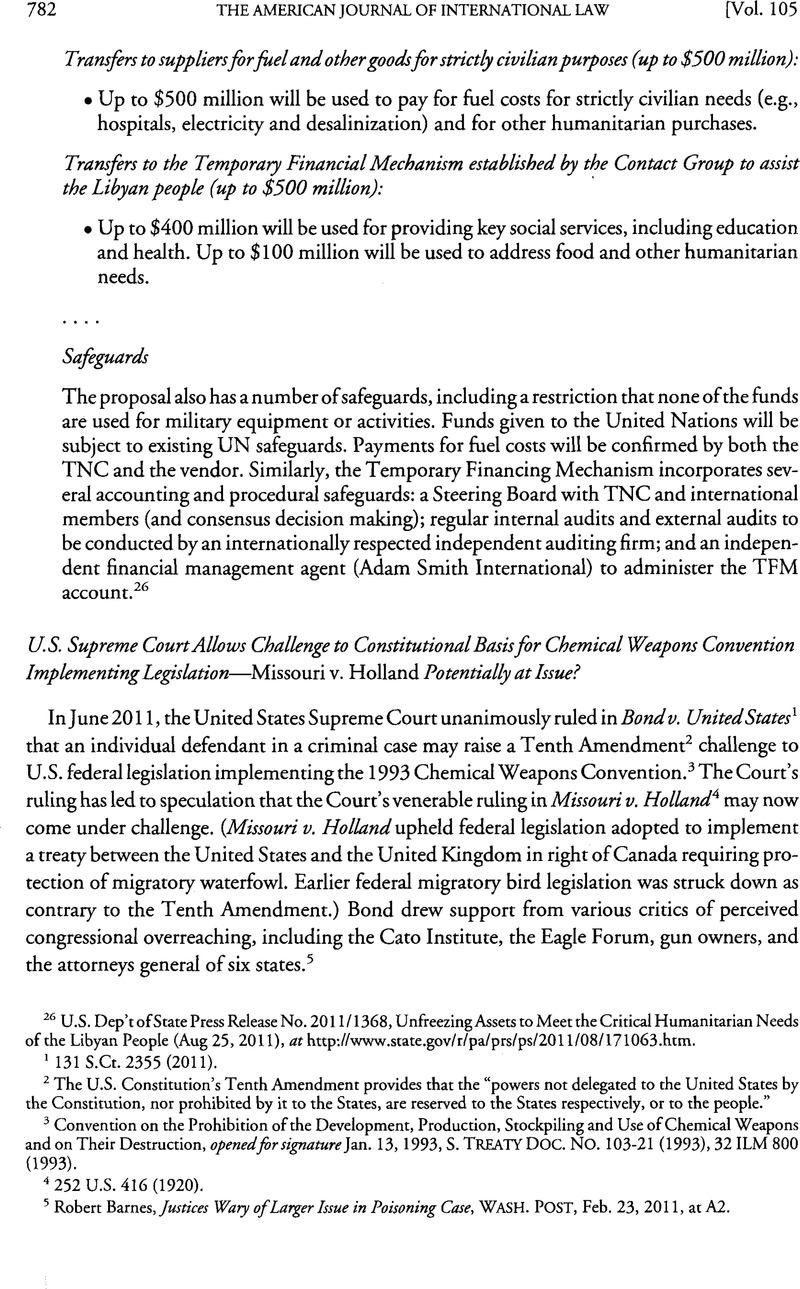No CrossRef data available.
Article contents
U.S. Supreme Court Allows Challenge to Constitutional Basis for Chemical Weapons Convention Implementing Legislation—Missouri v. Holland Potentially at Issue?
Published online by Cambridge University Press: 24 March 2017
Abstract

- Type
- Contemporary Practice of the United States Relating to International Law
- Information
- Copyright
- Copyright © American Society of International Law 2011
References
1 131 S.Ct. 2355(2011).
2 The U.S. Constitution’s Tenth Amendment provides that the “powers not delegated to the United States by the Constitution, nor prohibited by it to the States, are reserved to the States respectively, or to the people.”
3 Convention on the Prohibition of the Development, Production, Stockpiling and Use of Chemical Weapons and on Their Destruction, opened’for signatureJan. 13, 1993, S. Treaty DOC. NO. 103-21 (1993), 32 ILM 800 (1993).
4 252 U.S. 416(1920).
5 Barnes, Robert, Justices Wary of Larger Issue in Poisoning Case, Wash. Post, Feb. 23, 2011 Google Scholar, at A2.
6 Chemical Weapons Convention Implementation Act of 1998, 22 U.S.C. §§6701-6771; 18 U.S.C. §§229-229F.
7 581 F.3d 128 (2009).
8 Liptak, Adam, Court Takes Another Look at the Power of Congress, N.Y. Times, Feb. 23, 2011 Google Scholar, at A11.
9 Bond v. United States, 131 S.Ct. 2355, 2364 (2011) (citation omitted).
10 Id. at 2365.
11 Id. at 2366.
12 Id. at 2367.
13 Id. (Ginsburg, J., concurring).


